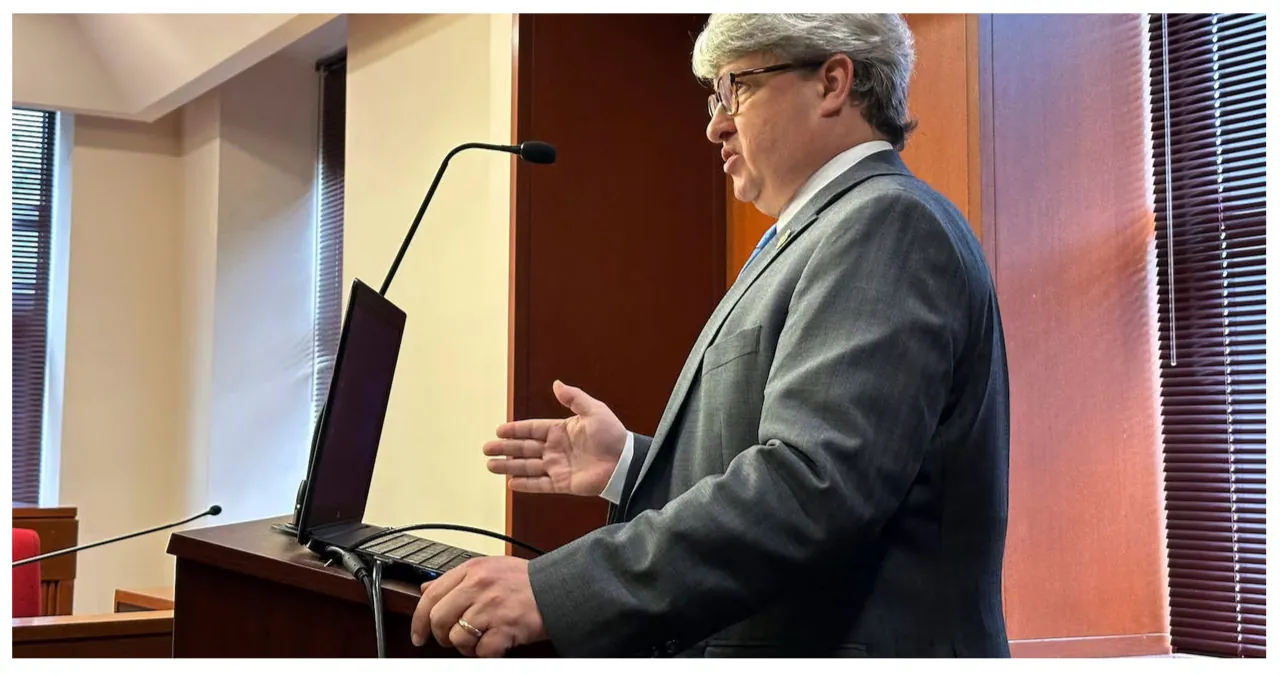Aiexpress – The power of Georgia’s appointed State Election Board to investigate Republican Secretary of State Brad Raffensperger’s handling of elections has sparked a constitutional showdown. Raffensperger’s lawyer argues that board members do not have the legal authority to oversee him.
Charlene McGowan, Raffensperger’s general counsel, expressed concerns about the proposal, stating that there is no previous instance where an unelected board of political appointees had oversight over members of the executive branch. She emphasized that granting unchecked power to a board of unelected bureaucrats over the state’s executive branch is a perilous policy suggestion.
The Senate Ethics Committee had a different opinion and decided to move forward with Senate Bill 358. This bill aims to eliminate Raffensperger’s nonvoting position on the board and grant the board the authority to hire election investigators independently, rather than relying solely on those appointed by Raffensperger. Moreover, the bill explicitly grants the board the power to conduct investigations involving the secretary of state.
“We aim to empower the State Election Board, ensuring clarity and accountability in its oversight responsibility,” stated Max Burns, a Sylvania Republican and Chairman of the Ethics Committee.
Republican lawmakers in Georgia are making a concerted effort to bring about changes in the way elections are conducted. This is just one aspect of their broader agenda.
Raffensperger gained national prominence for his unwavering support of Georgia’s 2020 election, in which Joe Biden, a Democrat, emerged as the narrow victor. Despite Donald Trump’s insistence on uncovering additional Republican votes, Raffensperger firmly stood his ground and rejected the notion. However, his steadfastness has also made him an outcast among many Republican activists. These activists persist in promoting Trump’s baseless claims of election fraud and his alleged rightful victory. As Georgia lawmakers, who are up for re-election this year, face mounting pressure from these activists.
Activists have been urging the State Election Board to conduct an investigation into whether Raffensperger mishandled his audit of Fulton County’s 2020 results. Their motivation stems from unproven allegations of fraud. In December, the board reached a deadlock of 2-2 on the issue of whether they had the authority to initiate such an investigation. Consequently, two board members have requested lawmakers to clarify the existing law.
During the committee hearing on Tuesday, a lawyer, who is employed by the legislature, informed the members that it is uncertain under Georgia constitutional law whether the State Election Board has the authority to regulate the secretary of state. However, the lawyer clarified that the proposed measure would not impact Raffensperger’s responsibilities as defined in the constitution. Supporters of the measure argued that they can proceed with it since the majority of Raffensperger’s election duties are specified in state law rather than the Georgia Constitution.
According to Senate Majority Leader Steve Gooch, a Republican from Dahlonega, the Georgia General Assembly has passed various laws throughout the state’s history. He emphasizes that these laws can be modified or amended through the legislative process as desired.
According to McGowan, lawmakers are providing assistance to individuals who are seeking to overturn valid election outcomes. This action also has the potential to grant the board the authority to impede the certification of Georgia’s presidential results in 2024.
McGowan wrote that a small group of activists is pushing for this proposal. Their objective seems to be the de-certification of the 2020 presidential election results. Their apparent intention is to grant the State Election Board the power to interfere with or potentially obstruct the secretary’s certification of the 2024 presidential election results.
Lawmakers are urging Raffensperger to take several actions to ensure the integrity of Georgia’s voting system. These actions include removing computer codes that are used to count most Georgia ballots, addressing voting machine software vulnerabilities in a timely manner, and implementing additional security features for ballots.
Raffensperger and his staff were notably absent during the Senate committee meeting on Tuesday. This was in stark contrast to the testimony given by Raffensperger’s deputy, Gabriel Sterling, to a House Governmental Affairs subcommittee on other bills.
According to Sterling, Raffensperger is in favor of a bill that aims to protect against forged ballots by implementing a watermark. He also expressed his support for a proposal that suggests conducting additional and more rigorous audits after elections to ensure the accurate counting of ballots by the machines. Additionally, John LaHood, the Governmental Affairs Chairman and a Republican from Valdosta, agreed to modify a bill that calls for the release of high-resolution scans of ballots for public scrutiny. Sterling highlighted that the existing scanners only generate lower-resolution images.
LaHood, supported by Republican House Speaker Jon Burns, has put forward a bill that aims to compel Georgia to discontinue the use of QR codes for ballot counting by July 1. Critics argue that voters are unable to verify if the computer codes correspond accurately to the selections printed on their ballots.
“Recently, Senator Brandon Beach, an Alpharetta Republican, voiced the concerns of the committee members, stating that the citizens do not have trust in the QR code. Based on this feedback, he proposed the removal of the QR code.”
In a recent address to lawmakers, Raffensperger expressed his support for the idea of scanning the “human readable text” on ballots to tally votes. However, he emphasized that implementing such a change before the upcoming presidential election in November would be impractical.
According to estimates from Raffensperger’s office, getting rid of QR codes would require an expenditure of $15 million to purchase over 32,000 ballot printers across the state.
The House subcommittee did not listen to testimony on Tuesday regarding the bill that aims to prohibit the use of QR codes. LaHood expressed hope that Raffensperger’s office would suggest an alternative solution using optical character recognition software.

